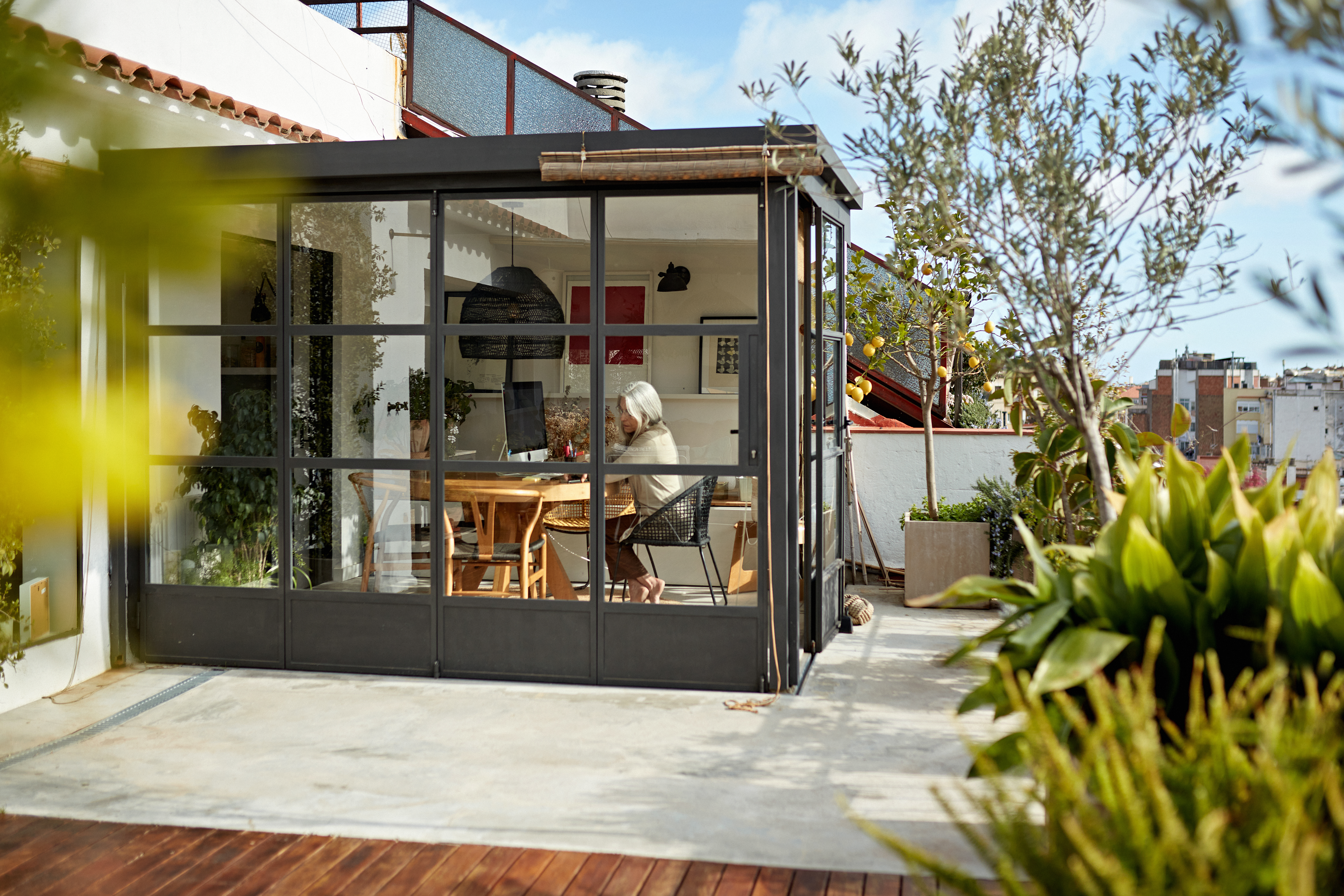5 Types of Energy Efficient Water Heaters

A water heater may be a basic component of your home, but it is essential for comfort and convenience. Not all of these appliances are created equal in terms of energy efficiency. So, how do you know if it’s time to upgrade?
On average, a water heater accounts for 18 percent of a home’s overall energy usage, which translates to about $170 to $300 per year in operating costs.
Could a new water heater cut your energy costs? Possibly, but choosing an energy-efficient replacement heater is not as simple as you might think: the best choice depends on your specific setup and your home’s water usage patterns.
Here’s what you need to know about choosing an energy-efficient water heater – and operating it as efficiently as possible.
Learn About Your Options
According to the U.S. Department of Energy (DOE), water heaters come in five different varieties.
- Conventional “storage” water heaters: the most common type in U.S. households, conventional water heaters use a tank (or reservoir) to store hot water, which is continuously reheated and ready on demand. These appliances are available in different sizes, ranging from 20 to 80 gallons. The correct size can affect efficiency performance greatly, because these heaters need to provide the minimum amount of heating for the household’s needs.
- Tankless water heaters: by heating water on demand, tankless heaters deliver a constant supply of hot water. While initial energy costs are often higher, tankless heaters are between 24 and 34 percent more energy efficient than conventional models, providing energy savings over time.
- Heat pump water heaters: these heaters move air from another (preferably warm) place and use it to heat water. Aside from the potential energy savings, heat pumps can be retrofitted to work on conventional storage tanks.
- Solar water heaters: by collecting the sun’s heat with solar collectors, these particular water heaters harness free energy. However, because solar heat is not continuously available, the home will still need a backup heating source (standard electric or natural gas) to operate at night.
- Tankless coil water heaters, or indirect water heaters: these appliances use heat from a home’s climate control system (such as a forced air furnace) to heat water. Tankless coil systems are ideal for colder climates where the furnace operates for half of the year or more.
Understand the Selection Criteria
Of the types of water heaters available, which option is best for you? It depends on several different variables, including:
- Fuel costs and availability. Water heaters can use various fuels: natural gas, propane, oil, electricity, solar, or geothermal energy. Since energy costs vary by region, it is important to weigh the cost of each type of energy, but remember that the cheapest energy source might not be the best if it can’t be paired with the most efficient heater option.
- Size. The size or type of heater should match your home’s water usage needs. Smaller tanks or on-demand tankless units can save energy costs in homes with light water usage, but they will prove inefficient in busier houses.
- Energy efficiency. What heater or combination of heaters is the most efficient? Look at average annual operating costs instead of shopping for heaters marketed as “high efficiency.”
To help you see how much you can potentially save with a more efficient water heater model, the DOE offers a calculator with input options based on water usage, heater type, and local energy costs. While this calculator only works for traditional gas and electric models, it can give you an idea of the efficiency ranges available, and how much money you could potentially save by reducing your water usage.
Then, you can search for the best model to meet your needs on the Energy Star website, which lists water heaters based on their efficiency.
Weighing the Cost of Installation
Another consideration is that the cost of installation can bump up the price tag. To ensure the maximum amount of efficiency and correct installation, we recommend hiring a qualified contractor with a proven track record instead of choosing the cheapest option.
Also, consider what kind of infrastructure is needed. Any changes to gas piping or exhaust venting, for example, can be expensive – especially when switching from electric to natural gas, moving the water heater, or changing from a tank to a tankless model.
These installation costs are not deal breakers, but you should factor them into the overall price versus savings equation.
Other Ways to Save
Smart practices can lower energy consumption for both new and existing water heaters:
- Turn down the temperature. Water heating costs drop by three to five percent for every 10-degree drop in temperature. Most heaters are preset to 140 degrees but can provide for most people’s hot water needs at 120 degrees.
- Install low-flow fixtures in showers. These fixtures use aerators to lower water consumption by 25 to 60 percent. Better yet, they are relatively cheap, and you can install them without professional help.
- Insulate hot water pipes. Water temperature drops approximately two to four degrees while traveling from the heater to a faucet. Simple pipe insulation on exposed basement pipes can keep the water hotter when it reaches the faucet.
- Limit use of non-shower, non-dishwasher hot water by washing clothes in cold water when possible and by always rinsing with cold water.
How to Finance Your New Water Heater
Do you think you would benefit from a major water heater upgrade, but the cost is making the decision difficult? Even with professional installation adding more to the cost, there’s a potential solution: property assessed clean energy (PACE) financing.
PACE provides a means to finance residential or commercial upgrades that save water, save energy or offer protection against storms and other natural phenomena. By leveraging the equity in your home, you can pay for the project over time, as an additional line item on your property taxes. Therefore, you can eliminate the upfront cost of a qualifying home upgrade and spread the payments out over decades, making annual payments on your property tax bills.
PACE can help you enhance your home's energy efficiency. Find out if PACE is available in your area – call Ygrene at (855) 901-3999 or check your eligibility online.




